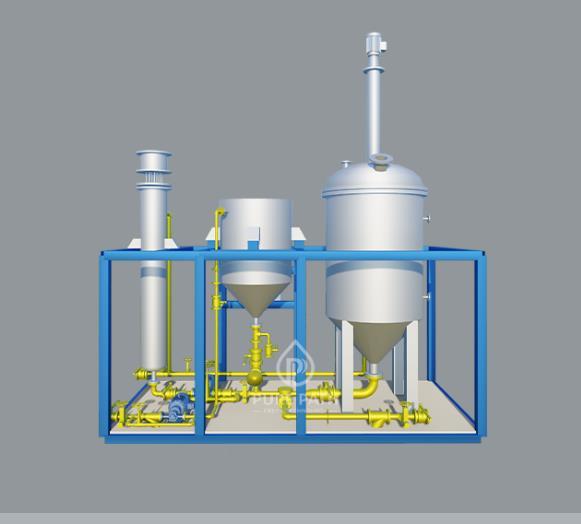The Role of Automation in Optimizing Lube Oil Blending Plants

Lube oil blending plants are essential for producing lubricants that are critical to various industries. Automation has revolutionized these plants, leading to increased efficiency, improved quality, and reduced costs.
Benefits of Automation in Lube Oil Blending
Enhanced Efficiency:
Precise Control: Automated systems can precisely control the blending process, ensuring accurate measurements and consistent product quality.
Continuous Operation: Automated plants can operate 24/7, maximizing production capacity and reducing downtime.
Reduced Labor: Automation can reduce the need for manual labor, leading to cost savings and increased productivity.
Improved Quality:
Consistency: Automated systems can maintain consistent product quality throughout the blending process, reducing the risk of defects or variations.
Data Tracking: Automation enables real-time data tracking and analysis, allowing for identification and correction of quality issues.
Compliance: Automated systems can help ensure compliance with industry standards and regulations, such as ISO 9001.
Cost Reduction:
Energy Efficiency: Automated systems can optimize energy consumption, reducing operating costs.
Reduced Waste: Automation can minimize waste and spillage, leading to cost savings and environmental benefits.
Improved Maintenance: Predictive maintenance capabilities in automated systems can help identify and address potential issues before they become costly problems.
Key Automation Technologies
PLC (Programmable Logic Controllers): PLCs control the entire blending process, coordinating the actions of various machines and equipment.
SCADA (Supervisory Control and Data Acquisition): SCADA systems provide a centralized view of the plant's operations, allowing operators to monitor and control processes from a single location.
Sensors and Instrumentation: Sensors and instrumentation measure various parameters, such as temperature, pressure, and flow rate, providing data for process control and quality assurance.
Robotics: Robots can be used for tasks such as material handling, blending, and packaging, increasing efficiency and reducing labor costs.
Challenges and Considerations
Initial Investment: Implementing automation can require a significant initial investment.
Training and Expertise: Operators and maintenance personnel may need specialized training to effectively operate and maintain automated systems.
Integration: Integrating automation systems with existing plant infrastructure can be complex and time-consuming.
Conclusion
Automation has become an indispensable tool for optimizing lube oil blending plants. By enhancing efficiency, improving quality, and reducing costs, automation can help businesses stay competitive and meet the growing demand for high-quality lubricants. As technology continues to advance, we can expect to see even more innovative automation solutions in the lube oil blending industry.
- Art
- Causes
- Crafts
- Dance
- Drinks
- Film
- Fitness
- Food
- Oyunlar
- Gardening
- Health
- Home
- Literature
- Music
- Networking
- Other
- Party
- Religion
- Shopping
- Sports
- Theater
- Wellness


